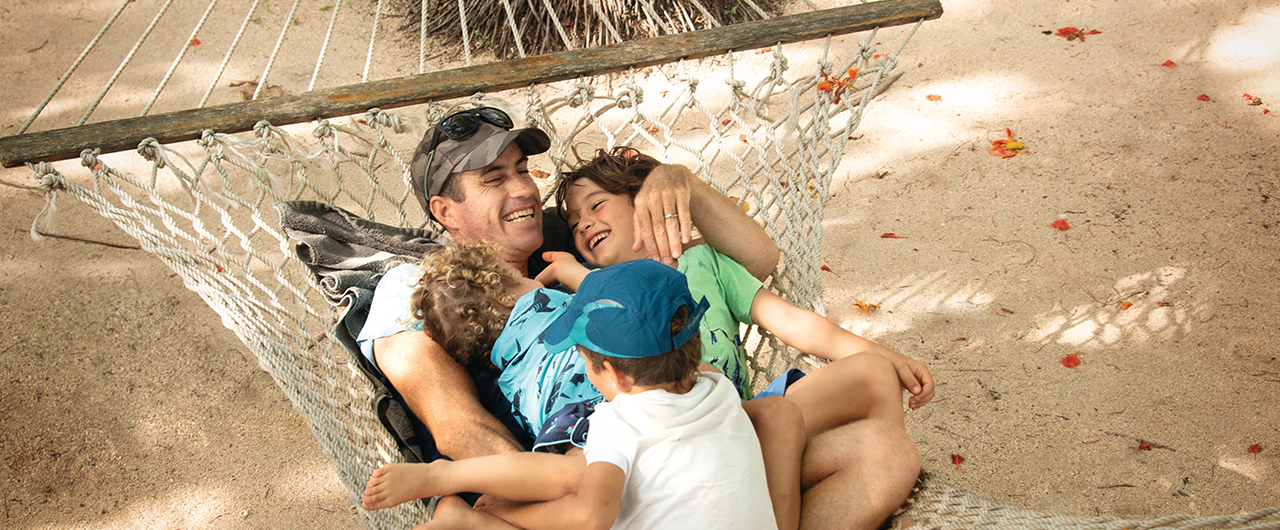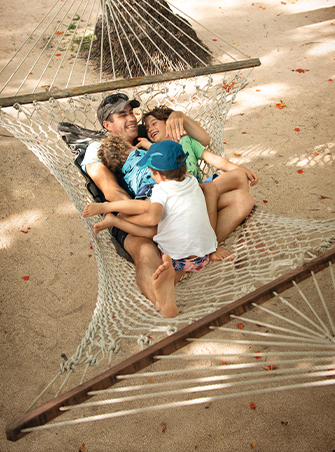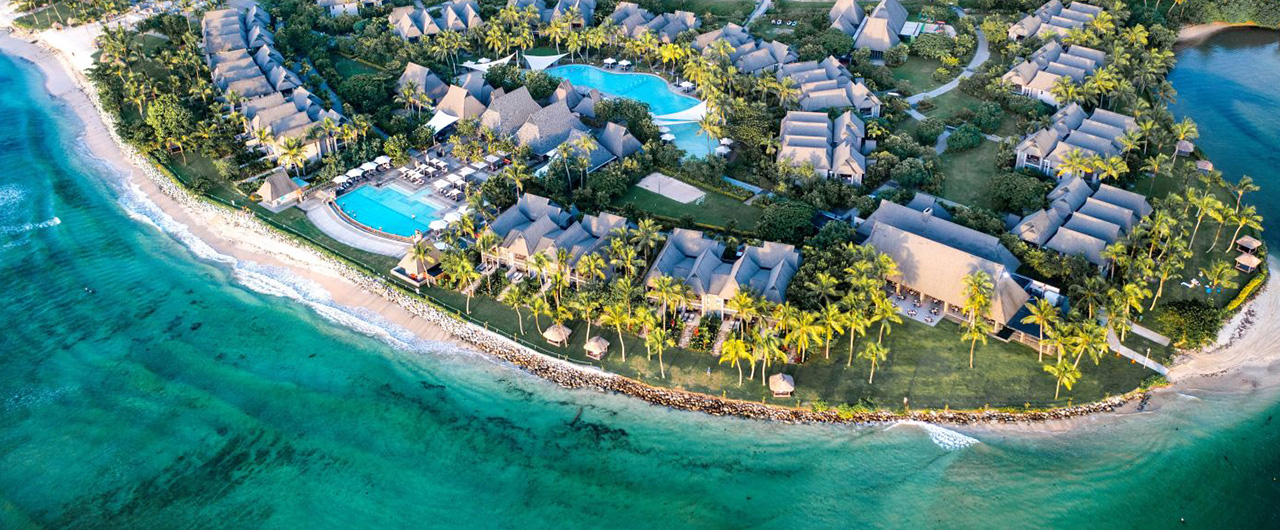Top Tips for Visiting Fiji with Kids


Here are some helpful Fiji travel tips for the family holiday of a lifetime
Plan and Book Early
School holidays are the most popular time to travel, so if you're planning on hitting Fiji while the kids are on a break then you'll want to book early to ensure you can lock in your first choice of flights and accommodation for a decent price.
Fiji's busiest months generally fall from June-August when Aussies and Kiwis escape winter for a taste of the tropics. There’s also a smaller travel peak over December- January during Christmas, New Year and summer. If your Fiji trip falls during these months, aim to book your flights, resort and activities as soon as you have confirmed your travel dates.
Keep in mind that other states/nearby countries might have different holiday dates from you too, so if you are thinking of taking a week off school to benefit from cheaper prices and less people, just double check other Australia/NZ school holidays to make sure you're not overlapping with them.
Stay at Family-Friendly Resort
Fiji has an incredible selection of family-friendly resorts that are tailored to keeping children entertained and their parents relaxed; the ideal situation for any family holiday. There are often fantastic deals for families too, with some resorts offering 'kids eat free' or ‘kids stay free’ deals when sharing a room with adults.
Many resorts offer free kids' clubs with full supervision throughout the day, while parents can use their newfound downtime to enjoy the spa, hit the reef or just enjoy some peace and quiet with a piña colada in hand. Kids can also make heaps of new friends as well as learn about Fijian culture through arts, crafts and friendships with staff. It often ends up being the most memorable part of their holidays!
The age range of kids' clubs depends on the resort but is typically from 3-10years old. Some resorts also have options for younger kiddos as well as activity programmes for teenagers. Many resorts also offer nannies or babysitting services.

Consider Self-Contained Rooms or Private Villas
If you're taking a Fiji holiday with extended family or a group of friends, a private villa or self-contained apartments might be might be cheaper and keep things low stress. With your own kitchen you can prep and cook the occasional meal for your group without having to worry about booking multiple tables for each meal at a resort.
Options range from cheap and cheerful AirBnB apartments in the urban centres of Nadi, Denarau or Suva, to multi-room private villas or self-contained rooms at one of the iconic beach resorts where you get the best of both worlds. No matter your group size, budget or travel style, there’s a self-contained option thats perfect for you.
Explore the Local Restaurant Scene
If you’re staying in one of the main towns or cities in Fiji, go out and explore the local food scene. Fiji’s cuisine is fresh and varied, with plenty of options for travellers of all ages and dietary preferences to enjoy. They’re also typically cheaper than what you'd spend at a resort.
Dishes you can expect from local eateries include freshly-caught seafood, hearty vegetarian or meat curries, asian stir-fries and tropical treats like exotic fruit salad or cassava cake for dessert. Some local restaurants have kids' menus too, with cheaper, smaller portions of more classic food options to keep the young ones happy while you devour the divine Fijian cuisine.
Pack an Essentials Medical Kit
Nothing can ruin a family holiday as quickly as an injured or upset kid, so take a small medical kit with you when you're travelling to Fiji. While all resorts will have their own medical kits for emergencies and there are many local doctors that can help in serious cases, it's always a good idea to be prepped for issues like sunburn, grazes, bug bites, dehydration and food poisoning. You can pick most of these up at pharmacies in Nadi before you head to your hotel.
Pack things like your own medication from home (with some extra in case of any travel delays or disruptions), reef-safe sunscreen and after-sun lotion, a thermometer, mosquito repellent and bug bite relief cream like calamine lotion, generic painkillers and flavoured electrolytes to help kids rehydrate.
Coral scrapes and cuts can be extremely nasty and don't heal the same way as a normal graze. If you or your kids have an accident with coral while snorkelling then make sure you tell the resort staff immediately, they'll have the correct disinfectant wash and antiseptic cream you'll need to get it all sorted.
Stock Up On Snacks and Water
If you’re headed to a remote resort, it's a good idea to do a quick supermarket shop to stock up on healthy snacks and bottled water before settling into your hotel. You'll find supermarkets in Denarau, Nadi, Sigatoka (on the Coral Coast) and in other main towns and cities on Viti Levu and Vanua Levu but not in many of the smaller islands or remote areas.
Bring a Water Bottle and Cooler Bag for Day Trips
On that note, bring your own water bottle from home or buy one when you arrive to take with you on day trips around or out of your resort. Spending all that time in the sun, playing in the ocean and adventuring around the islands can make you dehydrated and moody.
Keep your kids sipping water throughout the day by using an insulated water bottle that keeps water cool and refreshing or take a small cooler bag to keep the sun from warming the bottles.
Pack Light
You don't want to be lugging around huge suitcases when you're travelling with kids who can't pull their own weight (literally!), so keep your baggage to a minimum for an easy, stress-free time in Fiji.
If you're taking a domestic flight in Fiji to your hotel, book the domestic and international flights together with Fiji Airways to include international baggage allowance on both flights. If you book a domestic flight separately, you'll likely have to pay additional for luggage.
Same goes for taking a helicopters or seaplanes when you arrive in Fiji; double check the luggage allowance before you write your packing list, as these forms of transport often have much lower luggage allowances than international flights.
Pack for Warm Weather
Packing light generally isn't too difficult when visiting Fiji, because the country is blessed with beautifully warm weather year-round. You can expect temperatures of 17-33°C, so loose-fitting, lightweight, quick-dry clothing is best.
Your Fiji packing list should include swimwear, a good sunhat, reef shoes, flip flops, light clothes, a light sweater and some lightweight trackpants for cooler nights, and a rainjacket. You could also bring your own floaties and/or snorkelling gear if you prefer but most resorts have these available for rent or you could buy some from the resort shop. The range is likely better and cheaper back home if you do have room in your luggage.
Pack a Travel Adapter and Power Bank
Fiji's standard voltage is 240V, the standard frequency is 50Hz, and the power plug is Type I, which is the same as in New Zealand, Australia, China and the South Pacific.
If the standard voltage in your country is between 220-240V (including New Zealand, Australia, the UK, Europe and most of Asia) and the frequency is the same then your electric appliances will work, otherwise you'll need a travel adapter. If in doubt, pack a travel adapter anyway!
It's a great thing to have in your luggage for all trips just in case. It's also a good idea to travel with a power bank and to recharge it each night, so you're never stuck without phone battery. Taking photos and videos all day can drain phone batteries quickly, so having a power bank on hand to top up your juice during the day might just save you from being phone-less during a beautiful sunset. Crisis averted!